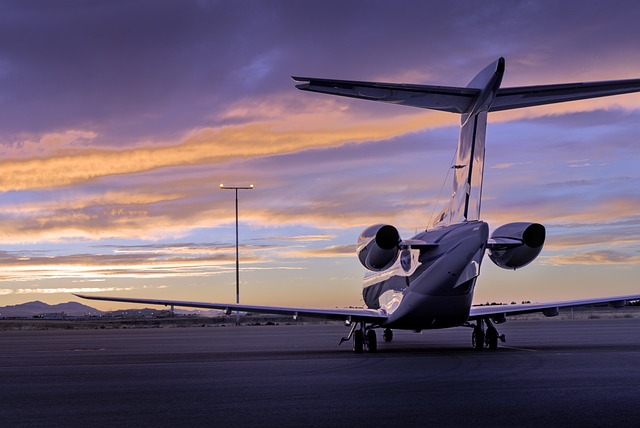What to Know About Careers as a Private Jet Attendant in 2025
With luxury air travel expanding in new ways, interest in private jet cabin roles continues to grow. This guide outlines what people often consider when exploring a career as a flight attendant in the private aviation space—ranging from service expectations and safety protocols to specialized skills training and typical qualifications. More related insights follow below.

Understanding the Private Flight Attendant Salary Landscape
Private flight attendant salaries vary significantly based on experience, employer type, and flight schedule. In 2025, entry-level private jet attendants can expect to earn between $50,000 and $70,000 annually, while those with 5+ years of experience often command $85,000 to $120,000. The most sought-after attendants working for ultra-high-net-worth individuals or royal families can earn upwards of $150,000 to $250,000 per year.
Unlike commercial flight attendants, private cabin crew often receive additional perks that significantly enhance their total compensation package. These frequently include luxury accommodations during layovers, generous per diems ranging from $100-300 daily, and end-of-year bonuses that can reach 10-20% of annual salary. Charter companies typically offer lower base salaries but more consistent schedules, while positions with individual owners offer higher pay but require more scheduling flexibility.
Essential Luxury Cabin Crew Training Requirements
Aspiring private jet attendants must complete specialized luxury cabin crew training that extends beyond basic safety certification. These programs focus on elite service standards, including wine knowledge, fine dining service, etiquette, and cultural sensitivity. In 2025, we’re seeing increased emphasis on specialized skills like security awareness, emergency medical care, and privacy protocol training.
High-end training providers like Corporate Flight Attendant Training, Cabin Crew Excellence, and FACTS (Flight Attendant Corporate Training Services) offer comprehensive programs that range from 5-14 days of intensive instruction. These courses typically include hands-on practice in actual private aircraft, culinary training with professional chefs, and modules on managing VIP expectations. As the industry becomes more competitive, attendants with multiple specializations (such as sommelier certification or foreign language proficiency) have significant advantages in the hiring process.
Navigating the Private Jet Hiring Process
The hiring process for private jet attendants is notoriously selective, often involving multiple interviews and practical assessments. In 2025, candidates should expect a multi-stage selection process that begins with rigorous resume screening. Successful applicants typically have prior hospitality or commercial aviation experience, foreign language abilities, and impeccable presentation.
After initial screening, candidates face panel interviews, practical service demonstrations, and emergency procedure assessments. The final rounds often include personality evaluations and sometimes trial flights with potential employers. Background checks are extensive, frequently including financial history reviews and social media screening. For positions with ultra-high-net-worth individuals or royal families, confidentiality agreements and security clearances are standard prerequisites.
The Reality of the VIP Aviation Lifestyle
The VIP aviation lifestyle offers extraordinary experiences but comes with significant demands. Private jet attendants frequently visit exclusive destinations and interact with influential individuals, but the work requires exceptional flexibility, discretion, and service orientation. In 2025, work-life balance remains a challenge, with many positions requiring 24/7 on-call availability and last-minute schedule changes.
The lifestyle involves frequent travel to luxury destinations but often with minimal personal time to enjoy them. While commercial flight attendants typically work fixed schedules, private attendants must adapt to their principals’ changing plans, sometimes spending holidays away from home or extending trips unexpectedly. The glamorous aspects of the role are balanced by physically demanding work, long hours, and the emotional labor of consistently providing flawless service regardless of personal circumstances.
Leading Training Programs and Their Costs
| Training Program | Duration | Key Focus Areas | Cost Estimation (2025) |
|---|---|---|---|
| FACTS Training | 7 days | Safety, culinary arts, VIP service | $5,500 - $6,800 |
| Corporate Flight Attendant Training | 10 days | Service excellence, cabin management | $6,900 - $8,200 |
| Beyond and Above | 14 days | Comprehensive program with internship | $9,500 - $12,000 |
| Aircare FACTS | 5 days | Safety-focused certification | $4,200 - $5,000 |
| The Corporate School of Etiquette | 8 days | High-end service protocols | $7,200 - $9,500 |
Prices, rates, or cost estimates mentioned in this article are based on the latest available information but may change over time. Independent research is advised before making financial decisions.
Key Skills for Success in 2025’s Private Aviation Market
As the private aviation industry evolves, successful attendants must continuously develop their professional capabilities. By 2025, employers increasingly value technical proficiency with cabin management systems, knowledge of sustainability practices, and expertise in wellness services. Advanced emergency medical training, such as managing cardiac events or severe allergic reactions, has become a distinguishing qualification.
Digital communication skills are essential as principals increasingly use proprietary apps to communicate preferences and requirements. Cultural intelligence—the ability to seamlessly adapt to different customs and expectations—remains paramount as global private travel continues to expand. Private jet attendants who combine exceptional service skills with business acumen, discretion, and adaptability will find themselves most in demand in this elite profession.
Conclusion
A career as a private jet attendant in 2025 offers exceptional opportunities for those with the right qualifications and temperament. While the position demands perfectionism, flexibility, and dedication, it rewards successful candidates with competitive compensation, unique experiences, and exposure to the highest levels of service excellence. As the industry evolves, those who continuously enhance their skills and embrace the demanding yet rewarding nature of VIP aviation will find themselves well-positioned in this exclusive profession.
IMPORTANT DISCLAIMER: This article provides general career information only and does not represent specific job opportunities or active hiring. The information presented is for educational purposes about the career field and does not constitute job listings or recruitment. Readers interested in pursuing this career path should conduct independent research and connect with official hiring channels in the aviation industry.




